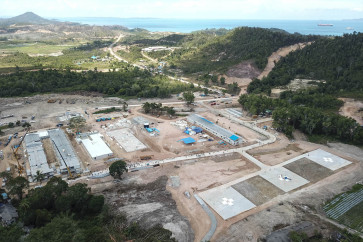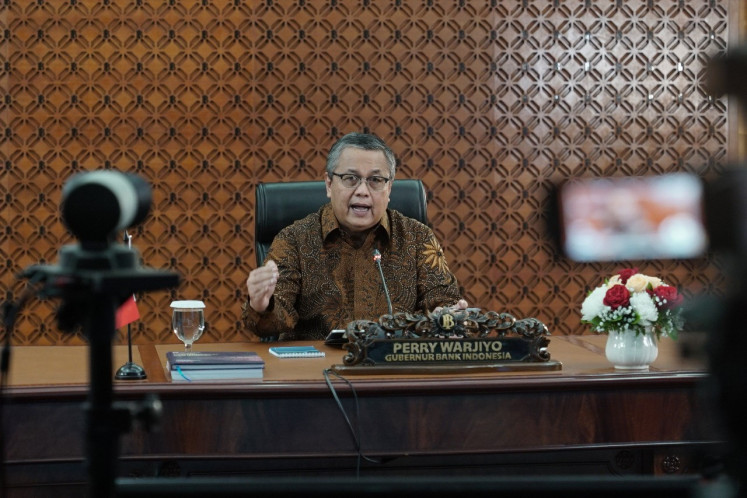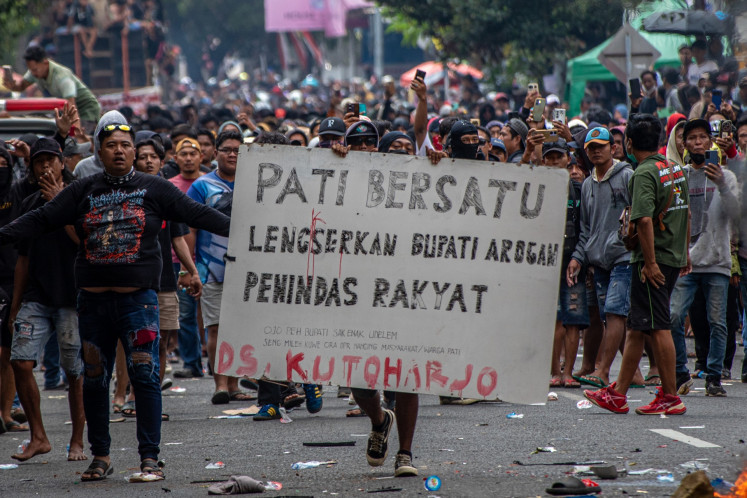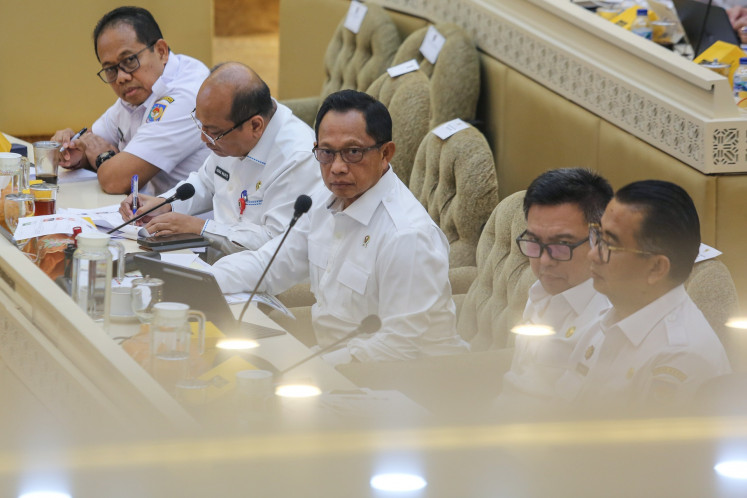Popular Reads
Top Results
Can't find what you're looking for?
View all search resultsPopular Reads
Top Results
Can't find what you're looking for?
View all search resultsCivic freedoms at stake under terrorism law revisions: Activists
Members of the Central Kalimantan Police's Mobile Brigade conduct a counterterrorism exercise in Sampit, Central Kalimantan on Monday
Change text size
Gift Premium Articles
to Anyone
M
span class="caption">Members of the Central Kalimantan Police's Mobile Brigade conduct a counterterrorism exercise in Sampit, Central Kalimantan on Monday. The police are on guard against terrorist threats following the attack in Jl. MH Thamrin last week. (Antara/Norjani)
Human rights activists slam the government's plan to revise terrorism laws to expand the authority of the State Intelligence Agency (BIN) because it may allow abuse of power and harm civil freedoms.
In the wake of an attack that struck the capital city on Jan. 14, BIN chief Sutiyoso has asked the government to give his agency wider authority to preemptively arrest and detain people suspected to be terrorists.
"Such a suggestion may harm Indonesian citizens. It will allow BIN to arrest and detain anyone under the assumption [that person is] threatening national security," Wahyu Wagiman, the executive director of the Institute for Policy Research and Advocacy (ELSAM), told thejakartapost.com on Wednesday.
Under Indonesian Law, only the National Police have the authority to arrest people suspected to be connected to acts of terrorism. Police are allowed to arrest suspected terrorists for seven days for investigation.
In the planned revisions of the 2003 and 2013 laws on terrorism prevention and eradication, the government is considering allowing the police to detain suspicious people for up to two weeks.
If BIN is given the authority to arrest, Wahyu fears that the suspected citizens would face difficulties in proving themselves innocent before the courts because BIN's verification process is different from that of other law enforcement bodies.
The discussions of the revisions began after Jan. 14's terrorist attack on Jakarta's main street of Jl. MH Thamrin that left eight people dead, including four of the terrorists, and left 25 people injured.
Critics fear the revisions could bring back the New Order regime when Indonesians were subject to a draconian anti-subversion law passed in 1963 under the dictatorship of then president Soeharto. The law was often abused to silence political activists and critics of the government. It was revoked under the administration of president BJ Habibie following the downfall of Soeharto in 1998.
Commission for Missing Persons and Victims of Violence (Kontras) chairman Haris Azhar also criticized BIN's request and urged the agency to strengthen its intelligence cooperation with the police instead.
He said arresting suspected terrorists must also be carried out carefully with evidence by highly skilled law enforcement officers.
"That is to prevent any false arrest that may happen to anyone suspected to be a terrorist," Haris said.
For example, he said, Indonesian people returning home from Syria could not all be suspected without valid evidence.
The chairman of the human rights advocacy group Setara Institute, Hendardi, also expressed similar concerns as he believed the current laws on terrorism were enough to handle terrorism issues in the country. He said the revision was a reactive step taken by the government and would only spoil BIN.
Separately, a police officer who spoke on condition of anonymity also implied police disapproval of the idea of widening BIN's authority.
The officer said that under the current law enforcement practices of the police, the rights of people suspected to be terrorists could still be respected.
"With another approach, such as through intelligence and the military, human rights are likely to be violated," the source said on Wednesday.
Keeping the police as the only law enforcers able to arrest suspected terrorists and bring them to court would help combat terrorism, the source claimed.
"Bringing the suspected terrorists to court can simplify the issues. The public will see terrorists as common criminals, not as notable people," the officer said. (rin)(+)










